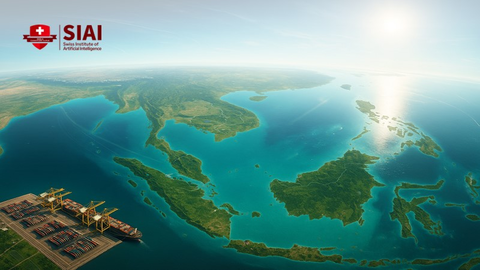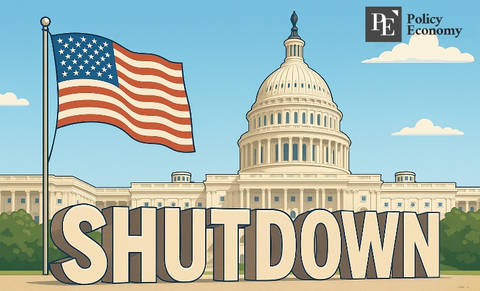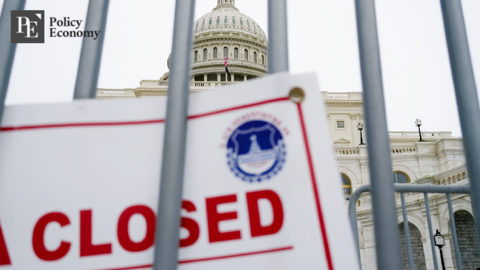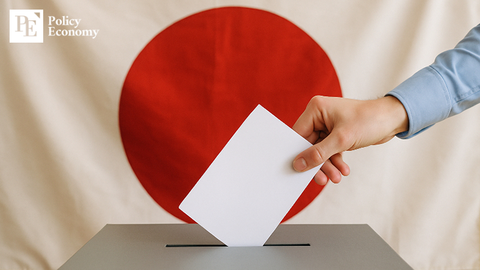[동아시아포럼] 일방향적 국제 정책과 글로벌 무역 질서, 그리고 WTO
입력
수정
[동아시아포럼]은 EAST ASIA FORUM에서 전하는 동아시아 정책 동향을 담았습니다. EAST ASIA FORUM은 오스트레일리아 국립대학교(Australia National University) 크로퍼드 공공정책 학교(Crawford School of Public Policy) 산하의 공공정책과 관련된 정치, 경제, 비즈니스, 법률, 안보, 국제관계 및 사회에 대한 연구·분석 플랫폼입니다.
저희 폴리시코리아(The Policy Korea)와 영어 원문 공개 조건으로 콘텐츠 제휴가 진행 중입니다.
저탄소, 플라스틱 배출 규제, 대중국 무역 규제 등으로 대표되는 일방향적 국제 정책이 글로벌 무역 및 투자 흐름에 미치는 영향이 증가하고 있다. 이와 같은 일방향적 국제 정책은 국제 합의기구에 큰 영향력을 행사하는 주요 무역 강대국에 의해 시행되는 경우가 많다. 무역 전문가들은 일방향적 정책 결정이 무역의 불확실성과 무역 투자에 대한 리스크 높일 수 있다고 경고한다.
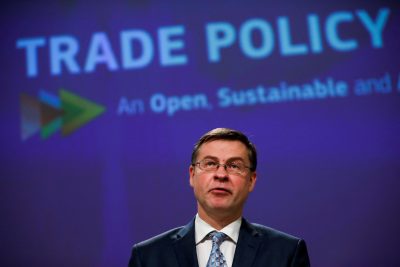
국제 정세 변화에 따라 WTO도 전략 변경해야
세계무역기구(WTO)는 저탄소, 플라스틱 규제 혹은 글로벌 안보적 이유의 비경제적이고 일방향적 국제 정책 진행에 있어 회원국에 대한 일반적 규제 혹은 필수적 WTO 안보 규제를 통해 일방적인 무역 제재를 진행할 수 있다. 하지만 비경제적인 정책 진행을 위한 일반적인 WTO 무역 제재는 국제 원칙에 기반한 무역 질서에 중대한 위협으로 작용할 수 있다. 무역 전문가들은 글로벌 교류를 위한 국제 원칙이 정상적으로 작동하기 위해선 대다수 국가가 공감할 수 있는 국제 규범에 대한 보편적 수용이 있어야 한다고 주장한다. 만약 다수의 국가가 공감할 수 없는 일방적 이념이나 특정 국가의 경제적 안보가 차별적 무역 제재의 명분이 될 땐, 글로벌 교류를 지탱하는 국제 원칙이 붕괴할 수 있다는 이유에서다.
일각에선 WTO나 도쿄라운드, 우루과이라운드 등 다자간 무역 협력이 긍정적인 방향으로 전개되기 위해서 새로운 합의 전략이 필요하다는 의견도 나온다. 무역 정책이 ‘무기화’ 전략으로 이용되기 시작하면서 중국이나 미국 등 경제 강대국 간의 신뢰가 약화해 무역 조건 협의가 어려워졌기 때문이다. 이와 같은 국제 정세 흐름에 따라 국가 간의 교류를 주도했던 경제적 목적의 무역 협의체 대신 전략적 자율성, 경제 안보 및 기타 비경제적 목표의 정치-경제 복합적 협력 시스템이 새로운 협력 채널로 등장했다.
이런 가운데 WTO가 국제적 영향력을 유지하기 위해선 국제 무역의 글로벌 구조가 비경제적 목표에서 촉발한 체제 간 경쟁 및 협력 관계에 기반하고 있고, 그 과정에서 무역이 하나의 수단으로 이용된다는 사실을 인지해야 한다. 아울러 이와 같은 비경제적인 목표를 위한 국가 간 무역 갈등이 발생하는 경우, WTO가 진행해 왔던 기존의 분쟁 해결 절차를 사용하는 것은 비효율적인 결과를 초래할 수 있다는 사실도 간과해선 안 된다.
특정 상황의 다자간 합의에 대한 WTO 일부 개입 필요
WTO가 개방적 글로벌 무역 체제 보호라는 기구 목적을 유지, 개선하기 위해선 WTO 회원국 간의 정책적 대화에 참여하는 절차를 보강해야 한다. 덧붙여 회원국들이 비경제적인 목적의 일방향적 정책 결정 및 진행을 전개할 시 그에 따른 긍정적, 부정적 파급효과를 평가하고 설명할 수 있는 심의 절차를 보강할 필요가 있다. 이러한 WTO의 국가 간 커뮤니케이션 역량 강화는 현재 국제 정세에서 각국이 직면한 글로벌 위협과 집단행동에 따른 리스크 감소에 도움을 줄 수 있는 정책 싱크탱크로 활용될 것으로 전망된다.
무역 전문가들은 체제적 혹은 지정학적 갈등과 경쟁으로 촉발된 다자간 논의 중 무역 정책에 대한 파급효과를 줄이거나 관리하기 위한 목적의 협약에 대해선 WTO가 직접적으로 개입할 필요가 없다고 말한다. 예컨대 미국이 주도하는 비경제적 목표의 이니셔티브 구성안은 규제 관행에 합의하는 등 무역 정책을 조율하기 위한 사안별 협력과 프레임워크를 추구하고 있다. 미국 조 바이든 대통령도 무역에 대한 관세 및 비관세 장벽의 인하가 목표인 무역 분야 협상엔 관여하지 않을 것이라 공언한 바 있는 만큼 추가적인 개입이 불필요하다는 설명이다.
현재 미국이 구축하고 있는 주요 이니셔티브 중 하나인 인도-태평양 번영을 위한 경제 프레임워크는 무역 자유화, 개방형 디지털 무역, 자유로운 국경 간 데이터 이동을 촉진하는 것을 목표로 한다. 이는 개방적 글로벌 무역 체제 보호라는 WTO의 목표에도 부합한다. 미국 주도의 인도-태평양 이니셔티브는 노동, 인권 및 환경 지속 가능성과 관련 생산 요건 개선을 목표로 무역 및 국제 투자에 대한 조건을 합의 중이므로 WTO는 회원국 간의 협의를 조율해 올바른 이니셔티브 구성을 위한 보조적 역할을 수행하는 등 제한적으로 참여하는 것이 효율적이다.
인도-태평양 이니셔티브처럼 참여국의 경제, 무역 시장이 국제 원칙에 따라 점진적으로 개방하는 목적의 다자간 합의체에 대해선 WTO가 보조적 차원의 지원에 나서는 것으로 국제 무역 질서 유지에 도움을 줄 수 있을 것으로 보인다. 반면 특정 국가에 일방적으로 유리하거나, 규제 목적의 배타적 국제 협정의 경우 국제 무역 질서를 악화시킬 수 있는 만큼 적극적인 개입이 필요하다.
이같은 과정이 정상적으로 작동하기 위해선 다자간 합의에 참여하는 모든 국가에 대한 복잡한 이해관계와 해당 합의를 통해 각 참여국이 어떤 영향을 받을지, 또 다른 국가에 어떤 영향을 미칠지에 대한 충분한 분석과 이해가 선행돼야 한다. 비경제적 목표에 대한 다자간 합의에 WTO가 모두 개입할 필요는 없지만 해당 합의가 미칠 무역 시장의 영향력에 대한 구체적인 분석 과정은 반드시 거쳐야 한다는 의미다. 또한 해당 합의가 국제 무역 질서에 악영향을 미칠 것이라 예상되는 경우 WTO 차원의 직접적인 개입도 필요하다.
WTO, 제한적 개입 통해 글로벌 시장 대응해야
WTO가 다자간 합의에 개입할 수 있는 구체적인 방법으로는 WTO의 기존 방침을 유지, 보완하는 방법론이 거론된다. 현재 WTO는 건전한 무역 질서 유지와 시장 개선을 위해 WTO가 지정한 제조 관련 요건을 충족한 국가만 개방적인 시장에 접근할 수 있도록 허용하고 있다. 즉 WTO의 가입국 요건처럼 글로벌 이니셔티브 참여국에 대한 맞춤형 가입 요건을 WTO가 제시해야 한다는 것이다. 이를 통해 글로벌 이니셔티브에 대한 이해 향상과 더불어 비경제적 목표의 국가 간 합의에 대한 국가별 배경과 영향력에 대한 분석력을 배양할 수 있을 것으로 전망된다. 아울러 국가 간 공동 행동의 정책적, 산업적 진행 방향에 대한 지속적 모니터링과 이니셔티브에 대한 제도적 메커니즘을 제공하는 제한적 차원의 개입을 달성할 것으로 기대된다.
비경제적인 목표를 위한 합의에 건전한 방향의 경제적 참여 요건이 보완되면 이니셔티브 참여국의 성장과 복합적인 목표를 가진 국가를 이니셔티브에 참여하도록 유도할 수 있는 긍정적인 효과도 도출할 수 있다. 또한 WTO는 글로벌 이니셔티브 참가국과 비참가국에 대한 일종의 가이드라인을 제기함으로써 글로벌 무역 시스템 성장에 기여할 수 있으며, 참여국에는 WTO 가입 예정국도 다수 포함되는 만큼 글로벌 이니셔티브는 일종의 브릿지 역할을 수행할 수도 있다. WTO가 국제 무역 시장을 넘어 비경제적 국가 간 합의에도 일종의 통제 가능성을 열어 둬야 하는 이유다.
Unilateral policies threaten the global trade order
Global trade and investment flows are increasingly affected by unilateral policies, ranging from export controls to industrial subsidies. Such policies are implemented by major trade powers, often motivated by non-economic objectives such as safeguarding national and economic security, combatting global warming and defending social values.

These policies create uncertainty, increase investment risk premiums and distort trade. World Trade Organization (WTO) members can justify unilateral action to achieve non-economic objectives by invoking general or essential WTO security exceptions. But widespread recourse to these provisions constitutes a major threat to the rules-based trade order. For the rules to function there must be general acceptance of norms of good behaviour. Those norms are violated when public morals or economic security become a cover for unilateral discriminatory trade policies.
What possible paths forward are there on multilateral trade cooperation?
The erosion of trust among the large economic powers, reflected in their increased willingness to ‘weaponise’ trade policy, is a major constraint to launching negotiations on new rules of the trade game. Instead, strategic autonomy, economic security and other non-economic objectives motivate calls for collaboration among countries with similar values and political-economic systems.
For the WTO to remain relevant in the 21st century, members have to recognise that international trade increasingly is linked to systems competition, cooperation and contestation over non-economic objectives — for which trade is seen as instrumental to policy success. The use of dispute settlement procedures, especially in cases where essential security interests are invoked, is likely to be both counterproductive and ineffective.
Efforts to safeguard an open global trade regime should instead centre on processes through which WTO members engage in policy dialogue. Institutionally supported frameworks must enable peer-based deliberation to assess the effectiveness and efficiency of the unilateral pursuit of non-economic objectives and their associated spillovers, which may be positive or negative. Such dialogue is necessary to inform the multilateral cooperation needed to address the major threats and collective action problems confronting the global community.
Systemic differences and geopolitical rivalry need not preclude cooperation to lessen or manage policy spillovers. The administration of US President Biden has made it clear that the United States is not interested in negotiating traditional preferential trade areas that centre on the reciprocal reduction of tariffs and non-tariff barriers on substantial volumes of trade. Instead, the United States is pursuing issue-specific cooperation and frameworks to coordinate policies, such as agreeing on regulatory practices on digital trade and the governance of supply chains.
One US initiative is the Indo-Pacific Economic Framework for Prosperity, which promotes trade liberalisation, open digital trade and free cross-border data flows with Asia. Such arrangements have implications for the trading system insofar as they act as frameworks for cooperation among subsets of WTO members. These subsets jointly condition trade and investment on shared values, including through production requirements relating to labour, human rights and environmental sustainability.
If associated regulatory cooperation arrangements are open to any economy interested in participating, with benefits extended conditionally after implementing agreed regulatory standards or principles, they can support a process of gradual multilateralisation. If, instead, regulatory cooperation is designed to be made up of exclusive arrangements, it could fragment the global trade system. Domain-specific open plurilateral agreements offer a better prospect for multilateralisation than preferential trade agreements.
Cooperation must be rooted in an understanding of the objectives of the participants and the way their interests are related to the domestic and international commitments of the countries involved. WTO reforms are not needed for discussions among members on non-economic objectives, but there must be political willingness to go beyond the ‘bread-and-butter’ of the WTO — it must negotiate on trade policy without considering the rationale for using specific trade instruments.
WTO members that condition access to their market on satisfying specific production requirements to achieve a non-economic objective have an interest in other states doing so as well. In many cases, WTO members may share a non-economic objective, providing scope for dialogue and discussion about possible joint action. Cooperation can take the form of concerted action by like-minded economies, but it is better to put in place a framework that encourages the formation of WTO-sanctioned clubs. This would ensure greater scrutiny, transparency, and analysis of the effects of trade–non-economic objective issue linkages that are pursued by groups of countries. This would benefit the jurisdictions pursuing joint action by helping them to monitor implementation and understand if interventions are effective and efficient. It will benefit those that do not join a club by providing an institutional mechanism that generates information on the benefits of club participation, the extent and incidence of the external effects of a club, and a channel through which to engage with club members.
There is much to be gained from cooperating on non-economic objectives of broadly common interest. Alliances have long been a form of international cooperation and are likely to appear more in the future to support deeper integration among like-minded economies. WTO reform discussions should include a focus on developing a multilateral framework to guide the formation of groups of like-minded economies motivated by non-economic objectives.
Facilitating scrutiny of such initiatives by WTO members would help club participants design and implement policies that are efficient. Accommodating clubs would also benefit non-participants by reducing the potential adverse effects on the trading system by establishing principles that clubs should abide by, including being open to any member willing to participate.
Anchoring clubs in the WTO would provide them with a multilateral institutional basis, foster transparency and support informed peer review of the use of trade policy instruments justified by non-economic objectives.
원문의 저자는 유럽대학연구소 로버트 슈만 심화연구센터(Global Economics at the Robert Schuman Centre for Advanced Studies in the European University Institute)의 버나드 호크만(Bernard Hoekman) 교수, 미국 컬럼비아대학교 로스쿨(Columbia Law School)의 페트로스 C 마브로디스(Petros C Mavroidis) 법학 교수, 미국 툴레인대학교(Tulane University)의 더글라스 넬슨(Douglas Nelson) 경제학과 교수입니다.


